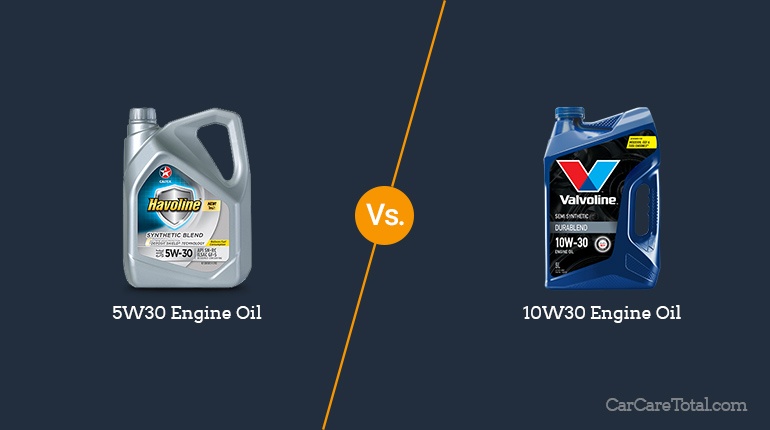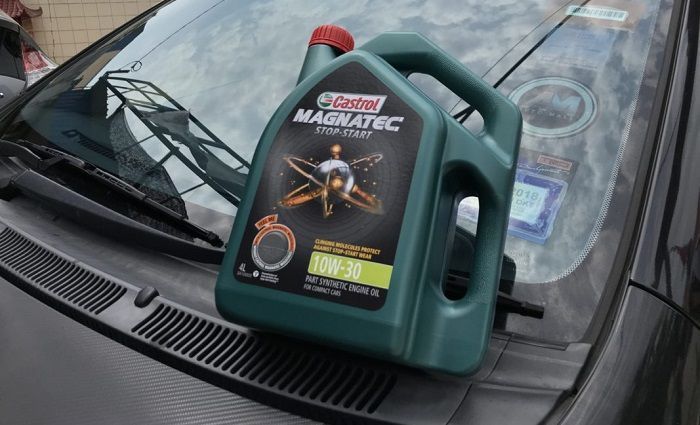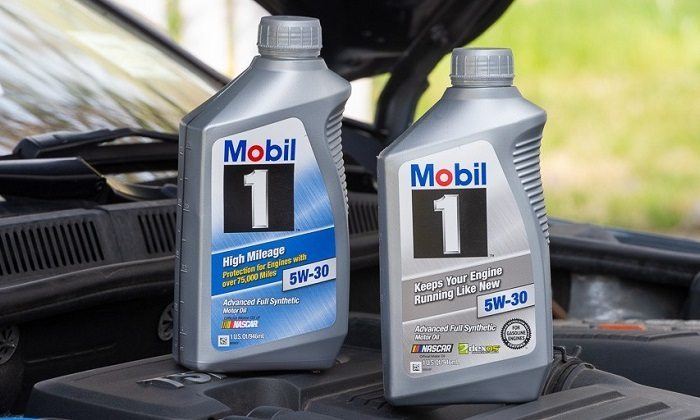by Joshua Thomas
While most vehicle manufacturers provide clear directions on the specific oil type to use on your vehicle, many motorists can still have difficulties figuring out which type to use.
And this is often more so when choosing between two reasonably similar types like 5W30 and 10W30. But things should be easier if you know what each type is all about and its best uses.
Contents

The 5W30 and 10W30 are multi-grade automobile oils, and they are among the most common SAE (Society of Automotive Engineers) specified ratings. The numbers refer to the oil's viscosity at different temperatures, while "W" stands for winter.
With 5W30, you get a viscosity of 5 in cold temperature and 30 in high or the normal operating temperature. The smaller number for cold temperature viscosity means this oil flows well in cold weather to provide excellent lubrication as it does not thicken a lot.
10W30, on the other hand, means the oil has a viscosity of 10 at cold temperatures and 30 at hot temperatures. It has the same thickness as the 5W30 at high temperatures but thickens more in cold weather.

When picking between the 5W30 and 10W30 engine oils, viscosity is the main factor to consider, given it is what sets the two apart. The best way to see the difference between the two is by using oils from the same product line for comparison.
The Castrol Edge high mileage product line has both the 5W30 and 10W30 and is a perfect choice for comparison purposes. Their 5W30 high mileage oil has a low-temperature viscosity of 6,200 mPa.s when measured at -30°C, while the 10W30 has a viscosity of 3,700 mPa.s at -25°C.
From these numbers, it is clear that the 5W30 is the thinner oil of the two and maintains good flow even in a frigid climate.
Another key difference to note is the ideal operating temperature range. 5W30 maintains good flow to keep the engine adequately lubricated when temperatures deep as low as -30°C but can also work well for temperatures up to 35°C. The 10W30, on the other hand, works best at a temperature range of between -25°C and 30°C, which is a relatively narrower range.

5W30 is the best choice of the two oils for those looking for a good quality oil to use on vehicles that are mostly driven in cold climates. The engine oil provides an excellent flow at low temperatures to allow for better cold-weather starting and ensure the engine is well lubricated.
Also, this engine oil is an ideal choice for light-duty petrol and diesel engines where the engine is not under too much pressure and hence not a lot of sealing action is required. Additionally, 5W30 can be ideal for vehicles driven in areas where temperatures fluctuate significantly, given its wider operating temperature range.
If what you are looking for in engine oil is superior sealing action for the engine parts to minimize wear and tear, use the 10W30.
10W30 is also best suited for use in hot weather as it thickens more in cold weather and hence does not maintain a good flow. This thickness makes it an ideal choice for vehicles that have to haul or carry heavy loads.
When deciding on which oil to use between the 5W30 and 10W30, you need to keep your vehicle type and typical driving conditions in mind, as the two work well in different situations.
5W30 has a higher low-temperature viscosity meaning it is a thinner oil and flows smoothly in low temperatures. Hence, it is the ideal option for vehicles driven in cold weather.
Despite not having an excellent flow in cold temperatures, the 10W30 seems to have an edge in lubricating the engine parts and reducing drag. Better still, it is a fantastic engine oil for use on heavy haul vehicles.
 |
 |
 |
 |

About Joshua Thomas
Joshua Thomas just simply loves cars and willing to work on them whenever there's chance... sometimes for free.
He started CarCareTotal back in 2017 from the advices of total strangers who witnessed his amazing skills in car repairs here and there.
His goal with this creation is to help car owners better learn how to maintain and repair their cars; as such, the site would cover alot of areas: troubleshooting, product recommendations, tips & tricks.
Joshua received Bachelor of Science in Mechanical Engineering at San Diego State University.
Just Car Care